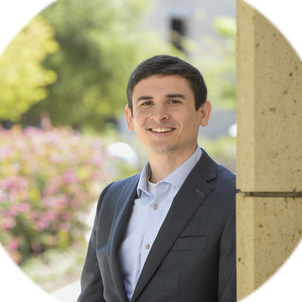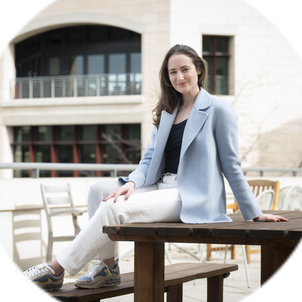I absolutely love the life sciences – chemistry and biology – and being in the lab, pipetting things and watching them change color, just felt really exhilarating to me.
I’ve chased that feeling here at Stanford, my dream school, ever since. I’m from Portland but I have some roots in the Bay Area: I was born in California and this is where my parents met. I’m first-generation American – my dad is an engineer from Cameroon and my mom is from Lithuania. They’ve always supported my goals and they also love Stanford; they brought me here when I was very little.
Today I’m fascinated by synthetic biology; it has the power to solve many problems, both in human health and the health of our planet. Through coursework and internships, I had exposure to some incredibly cool projects involving genetically modified organisms (GMOs) – a powerful example of synthetic bio in action – including when they were used to improve crop health. The idea is that we can feed people in a more sustainable way that doesn’t harm our planet.
I’m also very interested in how GMOs can be created in a lab to express more desirable characteristics or outcomes – and ultimately synthesize new and highly effective drugs. I love the idea that synthetic biology has practical applications, like creating new and more accessible painkillers and antibiotics. Millions of people around the world need to use these drugs, but don’t always have access to them.
I’m passionate about issues like access and justice, which are social determinants of health. Technology and biology can make such a difference, addressing problems of accessibility within historically underserved and vulnerable populations. Things like bacteria are easy to grow once engineered, and you can see how lifesaving medicines could be developed more sustainably. Last year, I got to have another go at that with the Stanford 2020 iGEM team, where we worked to try to engineer a COVID test in a living B. subtilis bacteria cell.
I love bioengineering because I’m drawn to a solutions-oriented approach and it feels like people in this department are working on applying and translating technology in very high-impact ways. And it’s clear that through bioengineering, there are many paths to address the problems I’m passionate about.
Related spotlights

Thomas Colburn

Kayla Patterson

